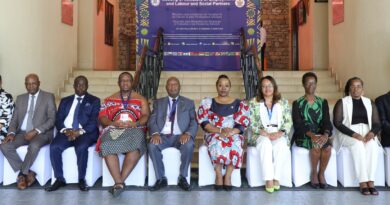Impact of Social Media on Civic Engagement in South Africa
In recent years, the role of social media in shaping public discourse and activism has become increasingly prominent in South Africa. Platforms like Facebook, Twitter, and TikTok have provided a space for South Africans to share information, express their frustrations, and mobilize for various social justice causes.
According to an article produced by Solly Moeng, Head of Corporate Communications & PR at Woolworths and part time lecturer at EU Business School in South Africa, One of the key aspects of this digital activism is the way it has shed light on critical issues affecting the country.
South Africans are using social media to report crimes, corruption, violence, and misgovernance. They document these issues through videos, photos, and personal stories, sharing them with a broader audience that extends beyond national borders.
However, the impact of this online activism is not without its challenges. Many individuals fear retribution from criminals or authorities when reporting crimes or corruption.
The reluctance to engage with law enforcement is partly due to concerns that some members of the South African Police Services may receive bribes from criminals.
This fear of corruption within the police force has led some to seek alternative ways to address these issues, such as sharing them on social media.
Another significant challenge is the prevalence of disinformation and fake news on these platforms. False narratives can quickly gain traction, muddying the waters of truth and making it difficult for South Africans to discern fact from fiction.
The spread of disinformation has become a common tool to undermine efforts to address critical societal issues.
The concept of truth itself has become relative in South Africa’s digital landscape. Various narratives vie for attention, often driven by political agendas. The result is a polarized information environment where discerning accurate information is increasingly challenging.
Despite these challenges, social media has become a powerful tool for raising awareness and mobilizing individuals to demand social justice, uphold the rule of law, and promote democratic principles.
The question remains whether South Africans can transition from being digital activists to actively working together to bring about tangible improvements in their society.
As the country grapples with political fragility and an array of pressing issues, including corruption, crime, and misgovernance, the impact of social media on civic engagement is a topic of critical importance.
It remains to be seen whether the digital space can be effectively leveraged to translate online activism into real-world change.
The complex relationship between social media, civic engagement, and societal change continues to evolve, leaving South Africa at a crossroads where the digital realm intersects with the physical world.
This story has been adopted from Solly Moeng, Head of Corporate Communications & PR at Woolworths and part time lecturer at EU Business School in South Africa.



